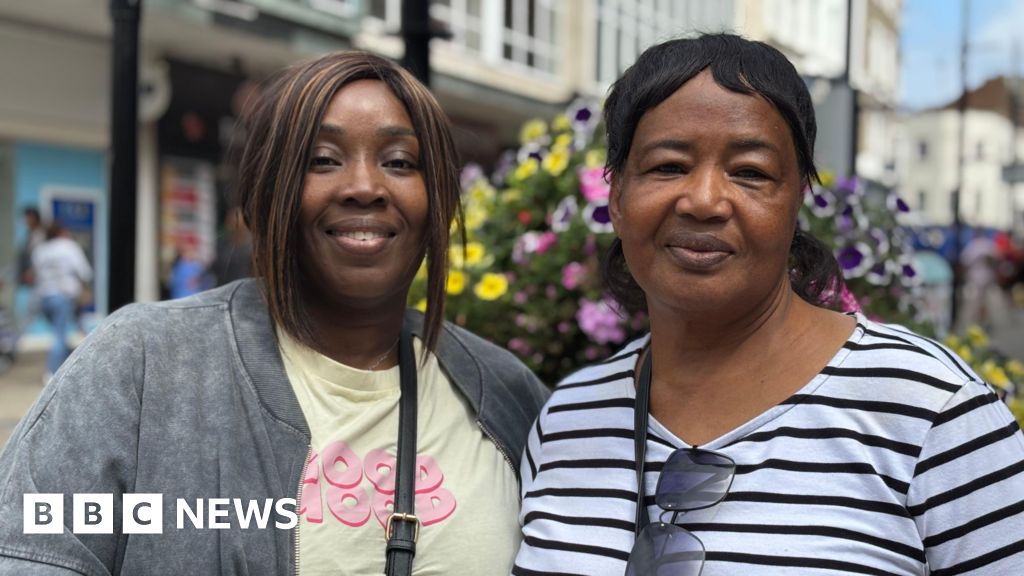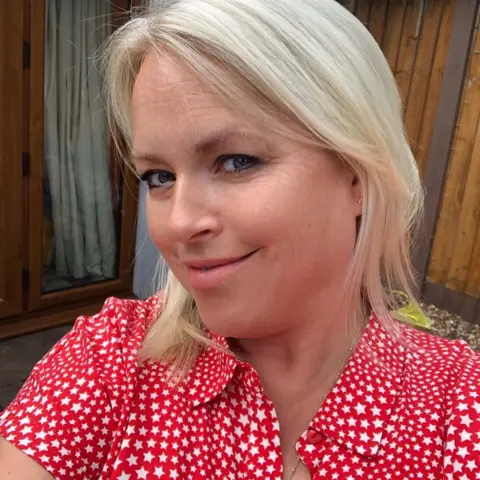
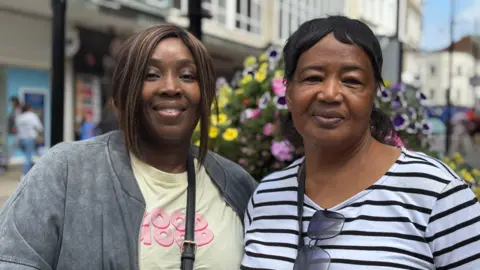 BBC
BBCThe planned introduction by a council of a so-called “fat tax” for wider burial plots at one of its cemeteries has been criticised by residents and a funeral director.
At Danescourt cemetery in Tettenhall, City of Wolverhampton Council had previously said families would be charged £2,700 if they need to buy a 6ft wide plot, a 20% increase on the cost of a standard 5ft grave.
Funeral director Ross Hickton labelled it a “fat tax”.
Following the BBC investigation, a spokesperson for the local authority said on Thursday afternoon that it had decided “not to proceed with the plans”.
It had previously defended the move, saying that it was responding to an increase in demand for larger graves, with obesity rates of 33.3% in the city compared with a national average of 25.9%, according to a 2021 survey.
Local authorities in Telford, Birmingham, Walsall, Coventry and Staffordshire have already implemented charges for wider coffins.
Wolverhampton resident Rosemarie McLaren had said she felt the planned move was “discrimination, it’s not acceptable”.
“Someone like me who’s a bit bigger, is going to be charged [more] because I’m fat,” she added.
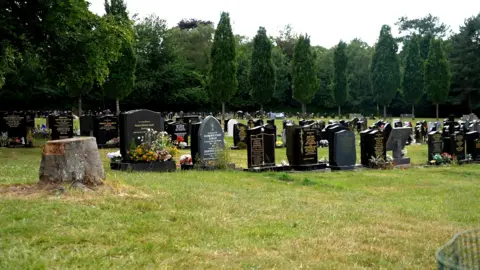
The decision to create a new dedicated section at Danescourt for larger coffins was taken by councillors in May.
A spokesperson said the authority had contacted 25 funeral directors who serve the city to ask for their thoughts and 10 responded, with one objection.
But Mr Hickton, from Hickton Family Funeral Directors, an independent company with seven branches across the West Midlands, said the consultation was “meaningless” and “didn’t involve the public at all”.
“Essentially it’s a fat tax,” he said.
“You know people have paid into the system their entire life, paid their council tax to Wolverhampton Council, and for them to be told [the grave is] 20% more because of the size of their loved one, it’s not really acceptable or fair.”
Speaking before the council backed down on the proposals, Matthew Crawley, chief executive at the Institute of Cemetery and Crematorium Management, said the charge seemed reasonable.
“You have a finite amount of space to work with; therefore if you need to eat into a grave next door, say, then that needs to be accounted for,” he said.
“You also have to account for the idea that digging the grave itself will also need extra equipment to keep it safe.”
On the term “fat tax”, he said: “Would it be more reasonable to maybe look at that as a concessionary fee for appropriate land usage?”
He said the charges were in place in other areas and it was a change in response to the population in general getting larger and not wanting to turn people away as a result.
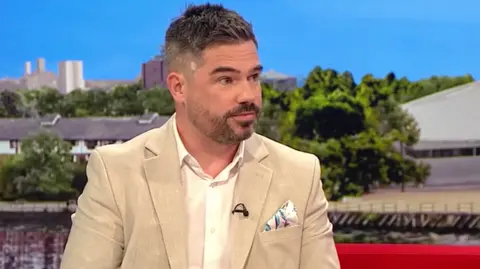
Another Wolverhampton resident, Selena Harris, who lives in the city with her young family, was worried how people would afford it.
“It doesn’t seem right, especially in a deprived area.” she said.
Ms Harris believed the council wanted to introduce the extra charges “to [try] and recoup costs, because councils are struggling at the moment”.
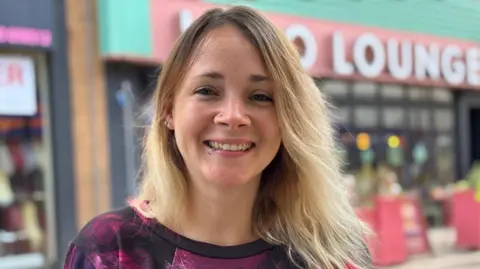
The council strenuously denied the claim.
It had earlier told the BBC it was introducing the changes “because there is a need for it” and the extra costs reflected “the increased costs incurred in providing them, including disposing of the additional soil”.
“Many other local councils, including Birmingham and Walsall, charge higher fees for larger graves”, a spokesperson had said, adding that costs for wider burial plots in Wolverhampton were similar or cheaper than in neighbouring authorities.
However, on Thursday afternoon the local authority’s position changed, saying that “no formal decision was ever taken on plans to charge more for larger burial plots”.
It said extra charges were a “common practice taken by councils around the country where higher charges cover the costs of providing a larger plot”.
“However, while under consideration, we have decided not to proceed with the plans.”
The National Society of Allied and Independent Funeral Directors surveyed its members to ask if their local councils charged more for wider plots.
Of the 165 who replied, a quarter said yes.
The BBC contacted 27 local authorities in the West Midlands and just over a third said they charged more for wider burial plots.
However, not everyone the BBC spoke to was against the idea.
Russell Smallman, from Castlecroft, said: “There’s a lot of obesity these days.
“A lot of [people] bring it on themselves and they’re not interested in doing anything about it, so I don’t know whether you can sympathise really.”
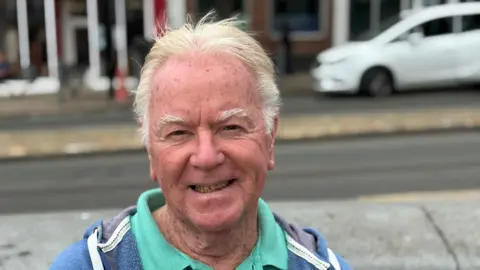
Mr Hickton, who is also the president of the National Society of Allied and Independent Funeral Directors, said other funeral firms he had spoken to also had concerns.
One firm asked the council what would happen if a couple wanted to be buried together but one was already in a standard grave at Danescourt and the other needed a wider plot in the bariatric section.
The BBC saw an email to the funeral directors which said families might ”have to consider burying the bariatric partner elsewhere, purchasing a second grave or exhuming the first partner to ensure they can be buried together”.
Mr Hickton added the plans to increase fees were also “an extra stress, burden and worry that a family really shouldn’t have to go through”.
The council did not respond specifically to that point, but in a statement to the BBC a spokesperson said: “We are committed to ensuring our bereavement services continue to provide dignity and accessibility for all families.”
